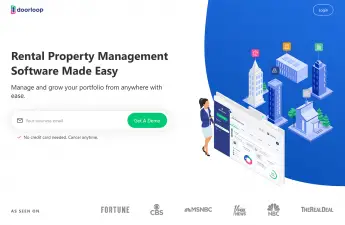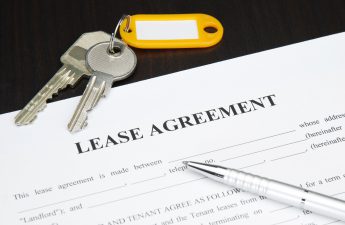In this video, founders Chris Lee and Eli Secor discuss how to price your rental. What rent pricing factors should you consider? What are the pros and cons of pricing too low or too high?
Topics discussed in this video include:
- Why is it important to get your rent price right? [0:22]
- How should you set your rent price? [3:36]
- What other things should you charge for besides rent? [5:50]
- Tools to help you with rent pricing [7:02]
Transcript
Eli Secor: Hi. You have Chris and Eli here from Landlord Gurus. We’ve been talking recently about pricing rentals and how important it is to get your pricing right, and have a strategy that works for you so that you can maximize the profit of your property.
So Chris, do you want to go into some of the topics that we have been discussing?
![]() Also Read: Rent Pricing: How Much To Charge For Rent?
Also Read: Rent Pricing: How Much To Charge For Rent?
Chris Lee: Yeah. I guess the first question is why is it important to get your price right? Obviously, you want to get your price right and you want to make money off your investment.
That’s sort of the goal of this. But, you know, kind of when you have a vacancy, then it comes time to list it, how do you determine that price and what are some considerations to think of? You can try and price it at a high rent price, you know, ideally, you could get as much as you could from that, to maximize your return, while keeping your tenants happy and so forth.
One option is to price it high, but then what happens if it sits on the market for a long time? If it takes one month or two months or three months to rent out, eventually you might get that price, but at the expense of losing out on a few months rent.
ES: Yeah, I just went through this, actually. I did some improvements to a house and I thought, well, you know, I really improved this, so I should be able to get lots more out of the rent than I was getting before. And well, the market has told me that that’s not really true.
I’ve since adjusted, and am carrying on, but you know, I definitely lost a month of rent at least.
CL: Exactly. And that’s tough. It’s your property and you’ve put in the time and effort and you have an emotional attachment to that property. You think it should be worth a certain amount because you like it and you’ve done all this stuff to it and you think it’s great.
The reality is that maybe the market doesn’t see it that way for whatever reason. It could be timing, who knows. Conversely, you might think, “Well, let’s just get it rented as quick as possible and I’ll set it at a low price.” But then, you may end up in a situation where someone rents it really quickly and that’s great and you got somebody in there, but increasingly it becomes more difficult to increase that rent price as time goes on.
You have some locations where when the lease expires, you can’t raise the rent as much as you would like to. There are limits on there. Or you got some instances where some places you can raise rent at any time, but other places, you have to give a certain amount of warning and you might miss that window or, whatever it is, you just might not end up capitalizing on what you could get out of it.
So you sort of lost potential rent.
ES: In practice, I’ve also found that even if my rent is low with a specific unit, if I raise it too much, what the tenant knows is that their rent just went up a lot, and that makes them upset.
Then they start looking around and the potential is that they’ll move, just kind of out of being upset.
CL: Right.
ES: So, in practice, I think a 10% increase, while it’s totally reasonable sometimes in terms of market, you know, corrections and pricing, anything over that tends to backfire. In my experience.
CL: I think you’ll find some locations where they won’t even let you raise it by that much.
ES: Right, yeah. Cost indexes plus a percentage. But that’s that’s a lot of our west coast cities and, you know, a few others around the country.
CL: I think in either case, you may end up in a situation where maybe you’re not covering your expenses, or you’re actually losing money each month.
Either because you’ve set it too high and it sat vacant for several months, and overall over the course of the year, you don’t get enough revenue to cover your expenses.
Or if you’ve priced it too low, you’re maybe not accounting for other things that might come up throughout the course of the year. Maintenance or repairs or anything like that. So, that’s why it’s kind of important to find that right price, that sweet spot.
ES: So how are we going to do it, Chris?
CL: I guess it’s an art and a science, I suppose. There are certain methodologies and there are rules of thumb that people will often use. Such as the 1% rule or the 2% rule where you charge rent that’s at least 1% of the property’s value or 2% or whatever.
There are other rules of thumb like investment type analyses where you might charge based on a gross rent multiplier or capitalization rates.
ES: Yeah, we’ve got calculators for those.
CL: Exactly. What those don’t consider is what the market is actually doing or what your property can actually bear, or your amenities or things like that. What people are looking for. So while those are good, it doesn’t really give you the full picture of what you should be charging.
So the things you should consider and things that we look at are comparables, you know, what are other properties in your zip code or your neighborhood or your region? What are they renting for? What’s the trend? Doing as well?
ES: Yeah, renters are going to search and they’re gonna see a list or a smattering on a map with prices. Even if there’s a pretty good reason for it, if it’s too out of step with what else is going on there, based on two bedrooms, one bath, or the basic configuration, then they’re just going to skip it. So you got to be in the mix. You have to be in the ballpark.
CL: Yeah. And you do need to analyze and compare it with other properties that have similar characteristics, you know, size, age, number of bedrooms, things like that.
ES: Outdoor space, any amenities. A lot of places here in Seattle don’t have dishwashers, so, those are things to look at, and washers and dryers in the unit, people love that. You want to take those things into consideration, but you then have to play them up in your listings so that people see and understand what they’re getting. People start looking for those things.
CL: Exactly. And you also need to consider your own costs. Utilities, taxes, things like that. You’ll often see rentals listed at a certain price, but then what you don’t see, or it’s listed in the description. We do this often, what the utilities are going to cost, that’s a separate charge, or some places have amenity fees that are a separate charge.
Things like that you might need to consider as well. In terms of what are your expenses and how can you, like we talked about before, you don’t want to be losing money. So, what rent do you need to charge? What kind of other things do you need to maybe charge as well on top of that, just, to make sure that you’re not funding a losing investment?
![]() Also Read: How to Increase Rent and Boost Your Rental Income
Also Read: How to Increase Rent and Boost Your Rental Income
ES: Yeah. I mean, we’re talking about a balancing act here between what you need and what you can get. And we touched on amenities, Chris, you know, some people provide, Wi-Fi for example, or they include things. And Wi-Fi, if you have a few units, at least, it’s probably a fairly affordable amenity to provide for people.
If it grabs people, then that may well be worth it. Garbage is a huge expense, for most properties, so that’s the one I call out as a fee. And I actually do that per person. You can’t charge rent based on how many people are in the property, generally. But you can charge based on utilities that you’re paying for that are consumed based on how many people there are.
CL: Yeah. So those are considerations when looking at the rent pricing in your area and you see other people listing. If you see something that looks about the same size as your unit and they’re charging $1,200, you need to look and say, well, is that $1,200 including utilities? Or is it not? Is it including Wi-Fi, or does it have pet fees on top of that? So that you can make a comparison about what your unit can bear as well.
ES: Right. And there are a number of tools out there to help with this.
So, Rentometer is a service that is pretty common. In fact, some of the larger property managers use it. It grabs listings from somewhere, I don’t really know where, you know, the listing sites, I think, and it takes a geographic area right around you and it calculates square footage, bedroom count, bathroom count. They’re estimating, but what they’ll give you, generally, is a range. And so you’ll know what the median is. And you can figure out what side of that your property belongs on, but also see where you are in the mix.
Rentometer is one, RentCast is one. Those are partners of ours. And, Avail and TurboTenant both provide that service as well. TurboTenant is free. Avail has a per-report fee to it. I think it’s $20. We should check that.
CL: Avail and TurboTenant are in the full, broader property management software tools. The rent pricing piece of that is one feature that you can get from those services. Whereas, Rentometer, that’s sort of solely what they do. We’ll include links to where you can read more about these products. We’ve also got a promo code for RentCast and I think, maybe Rentometer has a free trial as well.
Use promo code GURUS and receive a 20% discount on any pricing plan
So you can check those out, see what you think, and sign up and try them out from our site. We’ll put those links down below.
ES: Sounds good. All right. Well, thanks for being with us today. We will be back in a week or so. So thanks for being here.
CL: All right. Thank you.
Disclosure: Some of the links in this post are affiliate links and Landlord Gurus may earn a commission. Our mission remains to provide valuable resources and information that helps landlords manage their rental properties efficiently and profitably. We link to these companies and their products because of their quality, not because of the commission.




